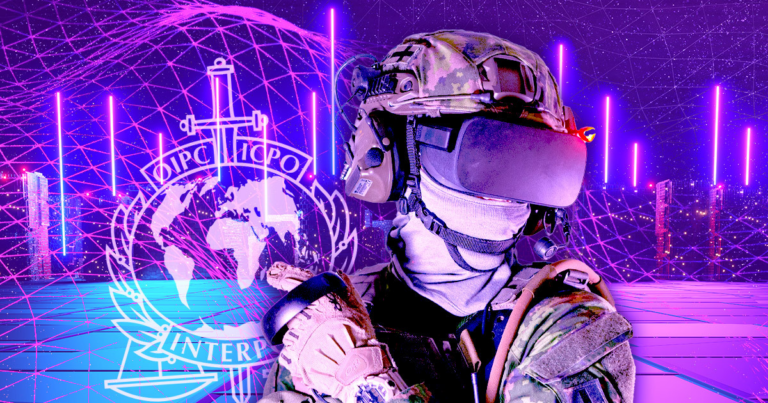 INTERPOL takes global policing to the Metaverse
INTERPOL takes global policing to the Metaverse INTERPOL takes global policing to the Metaverse
INTERPOL is looking to take premptive action against Metaverse criminality by embracing the tech and influencing governance at this early stage.

Cover art/illustration via CryptoSlate. Image includes combined content which may include AI-generated content.
International police organization INTERPOL has announced details of its law enforcement-specific Metaverse.
The concept intends to bring law enforcement officials together, regardless of physical location, for the purpose of cooperation and training.
“the INTERPOL Metaverse allows registered users to tour a virtual facsimile of the INTERPOL General Secretariat headquarters in Lyon, France without any geographical or physical boundaries, interact with other officers via their avatars, and even take immersive training courses in forensic investigation and other policing capabilities.”
The INTERPOL Metaverse
The concept was unveiled at the 90th INTERPOL General Assembly in New Delhi, India. Delegates experienced the INTERPOL Metaverse firsthand during interactive sessions laid out by the developers.
INTERPOL Secretary General Jürgen Stock said it would support the organization’s goal of fighting crime in the real world and online.
He alluded to the pace and adoption of virtual world technology by saying, “we may be entering a new world,” but that should not hamper the organization’s directives.
“For many, the Metaverse seems to herald an abstract future, but the issues it raises are those that have always motivated INTERPOL – supporting our member countries to fight crime and making the world, virtual or not, safer for those who inhabit it.”
As well as that there was also an acknowledgment that this “new world” may well be the next phase of the internet. Thus being worthy of experimenting with at this early stage of the development cycle.
More than for gaming
The Metaverse remains a divisive topic. Critics talk about it fostering a dystopian future in which “big tech” calls the shots.
Similarly, the low adoption rate, such as the relatively low number of unique visitors to Decentraland, suggests the general public is not ready to embrace the technology.
Nonetheless, quoting a study conducted by research firm Gartner, INTERPOL said by 2026, a quarter of people will “spend at least an hour a day in the Metaverse to work, study, shop, and socialize.”
INTERPOL is aware that criminals are already turning their attention to the Metaverse. However, the organization recognized that some real-world criminal acts might not be crimes in the virtual world. Meaning significant challenges lie ahead in policing the Metaverse.
But by embracing the technology and “having these conversations now,” Madan Oberoi, INTERPOL’s Executive Director of Technology and Innovation, said they could influence incoming governance frameworks and counter criminality before it can root.






































































































